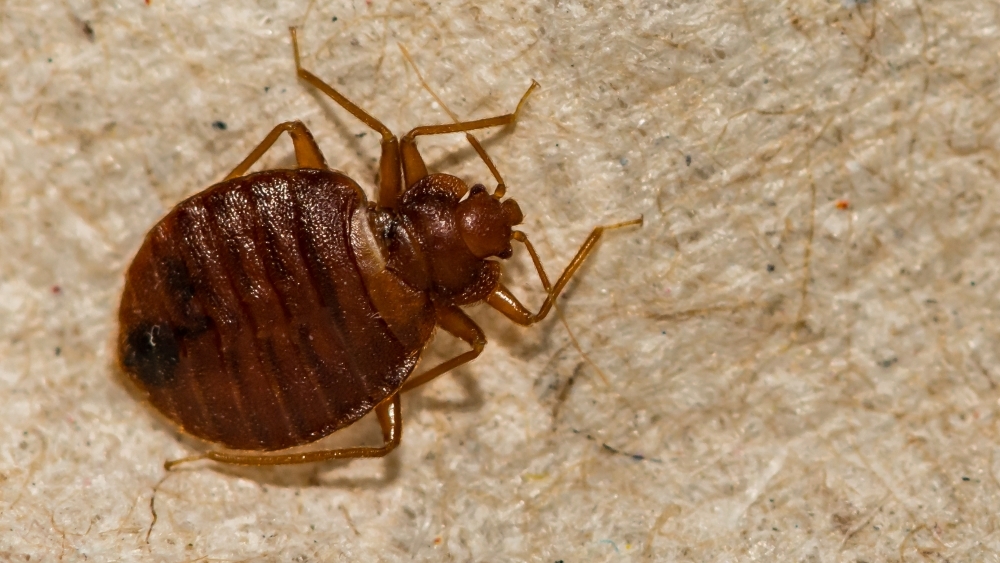Bed bugs are small, parasitic insects that feed on human blood, causing discomfort and infestations in homes and businesses. Identifying a bed bug infestation early is crucial to prevent it from spreading and becoming a significant problem. You’ll typically notice red, itchy bites on your skin, bloodstains on bedding, or the presence of small, brownish insects around the seams of mattresses or furniture. Preventing a bed bug infestation involves maintaining cleanliness, reducing clutter, and inspecting second-hand furniture before bringing it into your home. Once an infestation is confirmed, professional pest control services are often the most effective solution to eliminate the bugs entirely and prevent re-infestation.
How to Identify Bed Bugs
- Visual signs: Bed bugs are small, flat, and oval-shaped. Adults are about the size of an apple seed and have a brownish color. You might spot these insects in crevices, along mattress seams, or in cracks in furniture.
- Bite marks: Bed bug bites often appear in clusters or lines and can cause red, itchy welts. While not everyone reacts to bed bug bites, they are a common sign of infestation.
- Physical evidence: Check for tiny bloodstains on sheets and pillowcases, as well as small, dark spots of bed bug feces on mattresses or furniture. In severe infestations, you may also find eggs, shed skins, or even a musty odor.
How to Prevent Bed Bugs
- Cleanliness and decluttering: Keeping a clean, clutter-free home reduces hiding spots for bed bugs. Regularly vacuum your mattress, bed frame, and furniture, especially in cracks and seams where bed bugs are likely to hide.
- Inspect second-hand items: Bed bugs often hitch a ride on used furniture, mattresses, and clothing. Always inspect second-hand items for signs of bed bugs before bringing them into your home. Look for small insects, black spots, or eggs.
- Careful travel habits: Bed bugs can also be brought home from hotels or other accommodations. When traveling, inspect the mattress, bed frame, and headboard for bed bugs. Keep luggage off the floor, and consider using protective luggage covers.
How to Treat a Bed Bug Infestation
- DIY Treatments: For small infestations, some homeowners attempt DIY methods, such as washing bedding in hot water, vacuuming the affected areas, and using heat treatments or bed bug sprays. However, DIY methods are often only a temporary fix and might not eliminate all bed bugs.
- Professional Pest Control: Due to the resilience of bed bugs and their ability to hide in cracks and crevices, professional pest control is often the most effective solution. Pest control experts can thoroughly inspect the property, identify the extent of the infestation, and use specialized treatments to eliminate the bed bugs. Treatments may include heat, steam, or insecticides, which are more reliable than over-the-counter solutions.
- Follow-up and Monitoring: After treatment, it’s important to monitor for signs of re-infestation. Some professional pest control services offer follow-up visits to ensure the infestation is fully resolved. Additionally, reducing clutter and practicing preventive measures will help avoid future problems.
FAQs About Bed Bugs
Are bed bugs harmful?
While bed bugs don’t transmit diseases, their bites can cause itching, discomfort, and, in some cases, allergic reactions. The emotional stress caused by a bed bug infestation can also be significant.
Can I get rid of bed bugs on my own?
DIY methods can sometimes reduce the number of bed bugs, but full eradication usually requires professional pest control services. Bed bugs are resilient and can hide in tiny crevices, making them difficult to eliminate without specialized tools and treatments.
How do bed bug infestations start?
Bed bugs are typically brought into homes by hitching a ride on luggage, used furniture, or clothing. Infestations can start in any home, regardless of cleanliness, so it’s essential to be vigilant when traveling or purchasing second-hand items.
Trust the Experts at Hopper Termite & Pest
If you’re dealing with a bed bug infestation, professional help is often the most reliable solution. At Hopper Termite & Pest, we specialize in bed bug treatments along with a wide range of pest control services, including termite control, rodent management, and more. Don’t let bed bugs disrupt your peace – contact our team today for a free consultation at our Springdale office (479) 750-4070 or Mountain Home (870) 425-4122. Let us help you restore comfort and safety to your home!

